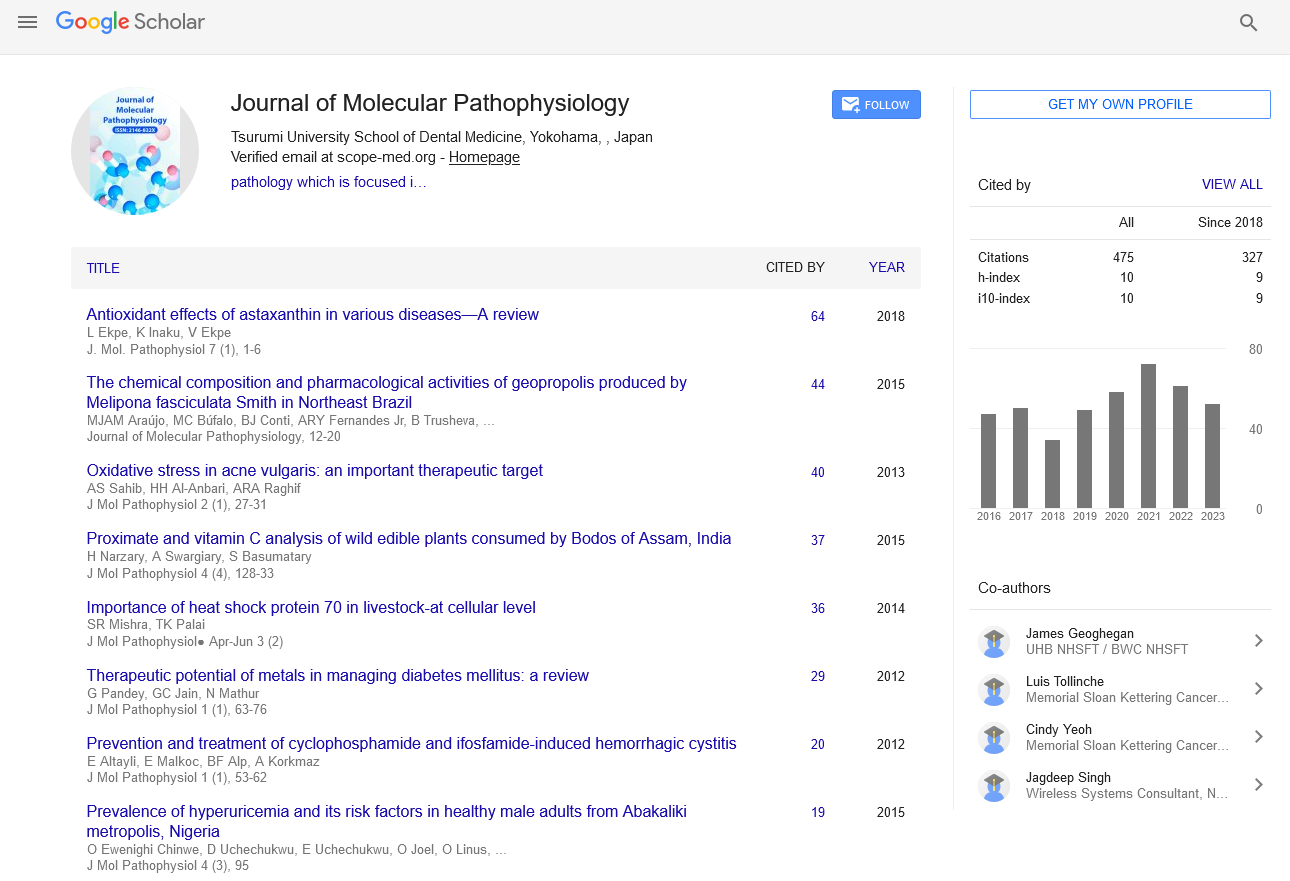Commentary - Journal of Molecular Pathophysiology (2023)
The Role of Infectious Factors in Disease Etiology
Adam W Stern*Adam W Stern, Department of Pathology and Population Medicine, Midwestern University, Glendale, USA, Email: Stern5555@gmail.com
Received: 26-May-2023, Manuscript No. jmolpat-23-100672; Editor assigned: 29-May-2023, Pre QC No. jmolpat-23-100672 (PQ); Reviewed: 13-Jun-2023, QC No. jmolpat-23-100672; Revised: 20-Jun-2023, Manuscript No. jmolpat-23-100672 (R); Published: 27-Jun-2023
About the Study
Etiology is the study of the causes of disease. The term etiology comes from the Greek words “aitia,” meaning “cause,” and “logos,” meaning “study.” Etiology is an important field of study in medicine, as it provides a basis for understanding the underlying mechanisms that contribute to the development of various diseases. This knowledge is essential for the prevention, diagnosis, and treatment of illnesses.
The etiology of a disease can be divided into several categories, including genetic, environmental, behavioural, and infectious factors. In many cases, a combination of these factors contributes to the development of a disease. Genetic factors are a significant contributor to many diseases. Inherited genetic mutations can lead to diseases such as cystic fibrosis, sickle cell anemia, and Huntington’s disease. These conditions result from specific changes or mutations in the DNA sequence of an individual’s genes. While genetic factors cannot be altered, understanding the genetic basis of a disease can aid in its diagnosis and management.
Environmental factors also play a critical role in the etiology of many diseases. Exposure to pollutants, radiation, and certain chemicals can lead to the development of cancers and other illnesses. The use of tobacco products is a well-known environmental factor that contributes to the development of lung cancer, heart disease, and other respiratory illnesses. Behavioural factors, such as diet and exercise, also contribute to the etiology of many diseases. Poor dietary habits, such as consuming high levels of saturated fats and sugar, can contribute to the development of obesity, diabetes, and heart disease. Lack of physical activity is also a significant risk factor for many illnesses. Infectious factors can also contribute to the etiology of diseases. Bacteria, viruses, and other microorganisms can cause infections that can lead to a wide range of illnesses, from common colds and flu to more severe conditions like pneumonia and meningitis. Understanding the underlying mechanisms of infectious diseases is essential for developing effective treatments and prevention strategies.
In addition to these broad categories, other factors, such as age, gender, and socioeconomic status, can also contribute to the etiology of diseases. Aging is a significant risk factor for many diseases, including cancer, heart disease, and dementia. Women are at a higher risk of developing certain conditions, such as breast cancer and osteoporosis, due to hormonal factors. Socioeconomic factors, such as poverty and access to healthcare, can also impact an individual’s risk of developing diseases. The study of etiology is an interdisciplinary field that requires collaboration between researchers in various fields, including genetics, epidemiology, microbiology, and toxicology. These researchers use a range of tools and techniques, including animal models, cell culture, and epidemiological studies, to investigate the underlying causes of diseases. Animal models are commonly used to study the etiology of diseases. For example, researchers may use mice or rats to investigate the genetic and environmental factors that contribute to the development of cancer. These models allow researchers to manipulate various factors and observe their effects on disease development.
Cell culture is another tool used to study the etiology of diseases. Researchers can grow cells in a laboratory setting and manipulate them to investigate the effects of genetic and environmental factors. This method is commonly used to study infectious diseases, as researchers can infect cells with various microorganisms to investigate how they cause disease. Epidemiological studies are another essential tool in the study of etiology. These studies involve the collection and analysis of data from large populations to investigate the prevalence and incidence of various diseases. Epidemiological studies can provide valuable insights into the risk factors associated with a particular disease and can help identify potential targets for prevention and treatment.
Copyright: © 2023 The Authors. This is an open access article under the terms of the Creative Commons Attribution Non Commercial Share Alike 4.0 (https://creativecommons.org/licenses/by-nc-sa/4.0/) This is an open access article distributed under the terms of the Creative Commons Attribution License, which permits unrestricted use, distribution, and reproduction in any medium, provided the original work is properly cited.







